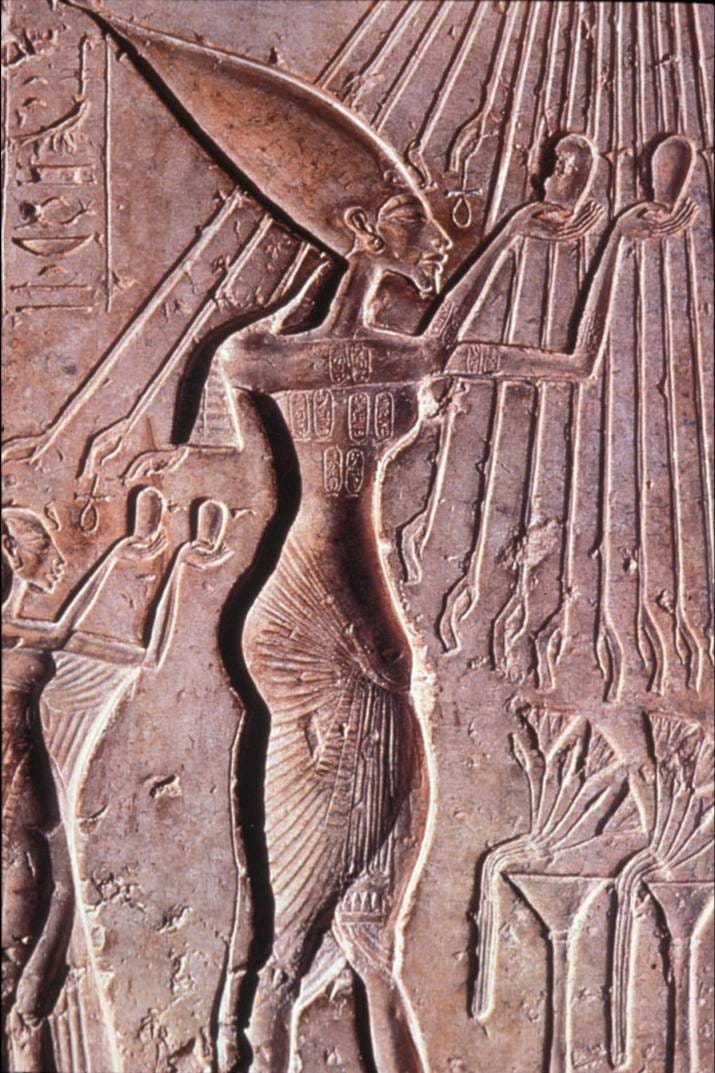Decoding Monotheism: Unveiling the First Civilization
The quest to pinpoint the first civilization to embrace monotheism is an enthralling journey through ancient history. Akhenaten’s Egypt, specifically during the 14th century BCE, emerges as a compelling contender, offering tantalizing clues to the origins of this revolutionary belief system.
Akhenaten’s Egypt (14th century BCE) stands as the first documented instance of a society attempting to transition to monotheism, elevating the sun disk Aten as the sole deity. Archaeological discoveries at Amarna, Akhenaten’s newly established capital city, reveal temples, hymns, and artwork dedicated solely to Aten, suggesting a deliberate shift away from traditional Egyptian polytheism.
The Radiance of Atenism: A New Dawn or a False Start?
Pharaoh Akhenaten, the enigmatic figure at the heart of this religious upheaval, introduced Atenism, a belief system that placed Aten, the sun disk, as the supreme god. This marked a radical departure from the worship of multiple deities prevalent in ancient Egypt.
Atenism emphasized light and life, portraying Aten as the source of all creation and sustenance. Akhenaten actively sought to diminish the prominence of other Egyptian gods, particularly Amun-Re, though the extent to which he persecuted their followers remains a subject of debate among historians.
However, Atenism differed significantly from the concept of monotheism as we understand it today. Akhenaten’s focus was on Aten’s supremacy, not necessarily denying the existence of other gods. Additionally, the pharaoh and his family positioned themselves as the sole intermediaries between Aten and the people, intertwining religious authority with royal power.
A Fleeting Revolution: The Legacy of Atenism
Despite its initial impact, Atenism proved to be a fleeting revolution. Following Akhenaten’s death, traditional polytheistic practices resurfaced, and Atenism largely faded from prominence. However, its influence on later monotheistic religions is a subject of ongoing scholarly discussion.
Some experts suggest that Atenism, though short-lived, planted the seeds for future monotheistic traditions, challenging traditional polytheistic beliefs. However, the ancient Egyptian context differed significantly from modern definitions of monotheism, lacking concepts like “belief” and “faith” as we understand them today.
Beyond Egypt: Exploring Other Monotheistic Contenders
While Akhenaten’s Egypt holds a prominent place in the narrative of early monotheism, it’s crucial to acknowledge other civilizations that explored similar theological paths.
Zoroastrianism, founded by the prophet Zoroaster in ancient Persia around the 6th century BCE, offers another compelling case study. This belief system revolves around Ahura Mazda, a single, benevolent god, locked in a cosmic struggle against the forces of darkness, represented by the spirit Angra Mainyu. While many categorize Zoroastrianism as monotheistic, its emphasis on this duality — good versus evil — raises questions about its adherence to a strictly monotheistic framework.
Unraveling the Threads: The Ongoing Search for Origins
The quest to definitively crown the “first” monotheistic belief system is an ongoing endeavor, fraught with challenges. Ancient beliefs were rarely clear-cut, often blending religious ideas, cultural practices, and political strategies. Moreover, applying the modern concept of “monotheism” to ancient systems can be an imperfect fit, as these societies may not have conceived of the divine in the same way we do today.
As our understanding of the ancient world evolves and new archaeological discoveries come to light, our perspectives on the origins of monotheism may continue to shift. The exploration of these ancient belief systems, with their similarities and divergences, offers invaluable insights into the human search for meaning and the enduring power of the idea of a single, all-encompassing divine force.
Further Exploration:
- Explore our serpent mound photos to uncover the enigmatic remnants of the ancient Adena culture and their beliefs.
- Delve into the question of whether the Nataruk were settled and discover evidence of their long-standing presence in the Arctic.
- Journey back in time to the reign of King Burghred and witness the intricate relationship between Anglo-Saxon rulers and Viking raiders.
- Mastering Leader in Spanish: The Complete Guide - April 19, 2025
- Uncovering Surprising Parallels: England Size Compared to US States - April 19, 2025
- Old Mexico Map: Border Shifts 1821-1857 - April 19, 2025

















1 thought on “The Enigma of the First Monotheists: Did Akhenaten’s Egypt Lead the Way?”
Comments are closed.